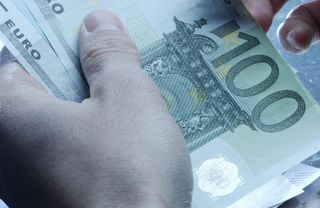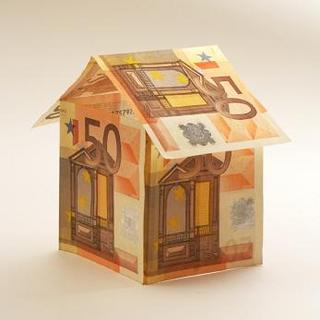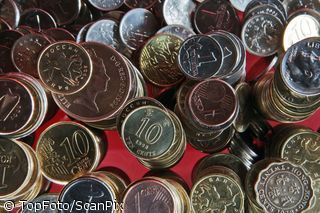Estonia announced strong economic growth figures for the fourth quarter of 1999, appearing to mark the end of a recession triggered by economic turmoil in neighboring Russia.
Published:
30 January 2000 y., Sunday
The economy expanded by 4 percent in the fourth quarter of last year, the first significant growth registered for 1999, according to the Estonia_s ministry of finance. In the first two quarters of last year, the economy shrank—by almost 6 percent in the first quarter and 2 percent in the second. In the third quarter, the economy grew by a paltry .2 percent. Even with strong year-end growth, the economy in 1999 still contracted overall by 1 percent. But a finance ministry spokesman, Daniel Vaarik, said Monday_s fourth-quarter data meant Estonia was officially out of recession.
He said annual GDP growth for 2000 should be around 4 percent. The official said the improved world economy had boosted Estonia_s economic performance. He argued that government steps to reign in spending also underpinned the recovery. Others analysts also pointed to growing consumer demand, an increasingly dynamic banking sector and lower interest rates as key factors. Fast-paced growth followed the implementation of tough market reforms in the early 1990s, with annual growth in Estonia peaking at 11 percent in 1997. But like with other countries in Eastern Europe, the collapse of the Russian market in 1998 came as a blow. Russia was a main export market for many large Estonian industries and farmers, and they were hit especially hard. Like Estonia, Latvia and Lithuania also saw growth rates drop following the deepening economic crisis in Russia. But after near-zero growth in 1999, they say they also expected growth rates of between 3-4 percent for 2000.
Copying, publishing, announcing any information from the News.lt portal without written permission of News.lt editorial office is prohibited.
The most popular articles
 Both women and men have been hit by job losses in the downturn, says a new report adopted by the European Commission today.
more »
Both women and men have been hit by job losses in the downturn, says a new report adopted by the European Commission today.
more »
 Unemployed car and construction workers in Sweden, Austria, and the Netherlands will get €15.9 million in EU Globalisation Adjustment Fund aid for training, self-employment and professional orientation services under a plan endorsed by Parliament in plenary on Wednesday.
more »
Unemployed car and construction workers in Sweden, Austria, and the Netherlands will get €15.9 million in EU Globalisation Adjustment Fund aid for training, self-employment and professional orientation services under a plan endorsed by Parliament in plenary on Wednesday.
more »
 As the economy recovers, EU countries will need to phase out crisis measures. The question is when?
more »
As the economy recovers, EU countries will need to phase out crisis measures. The question is when?
more »
 The European Commission has endorsed, under EU state aid rules, a Polish scheme intended to compensate the Polish Post for net losses incurred in discharging its public service obligations between 2006 and 2011.
more »
The European Commission has endorsed, under EU state aid rules, a Polish scheme intended to compensate the Polish Post for net losses incurred in discharging its public service obligations between 2006 and 2011.
more »
 The European Commission reports good progress in the implementation of the Small Business Act (SBA) in 2009.
more »
The European Commission reports good progress in the implementation of the Small Business Act (SBA) in 2009.
more »
 The European Commission approved the first financing decisions in favour of eleven African and two Caribbean countries for a total of € 230 million, including € 215 million under the so-called Vulnerability FLEX mechanism (V-FLEX).
more »
The European Commission approved the first financing decisions in favour of eleven African and two Caribbean countries for a total of € 230 million, including € 215 million under the so-called Vulnerability FLEX mechanism (V-FLEX).
more »
 Legal measures to make it easier for people who have lost or risk losing their jobs to get credit to start up their own businesses were backed by the European Parliament on Tuesday.
more »
Legal measures to make it easier for people who have lost or risk losing their jobs to get credit to start up their own businesses were backed by the European Parliament on Tuesday.
more »
 How can companies and industry help to stop climate change? This is one of the questions on the table when Sweden’s Minister for Enterprise and Energy Maud Olofsson attends the climate change conference in Copenhagen on Monday and participates in a panel discussion organised by Businesseurope.
more »
How can companies and industry help to stop climate change? This is one of the questions on the table when Sweden’s Minister for Enterprise and Energy Maud Olofsson attends the climate change conference in Copenhagen on Monday and participates in a panel discussion organised by Businesseurope.
more »
 In a meeting held today in Brussels, the Gas Coordination Group, under the chairmanship of the Commission, has discussed with Russian Gas Company Gazprom the gas supply and demand outlook and investment strategy of the company in both Russia and the EU.
more »
In a meeting held today in Brussels, the Gas Coordination Group, under the chairmanship of the Commission, has discussed with Russian Gas Company Gazprom the gas supply and demand outlook and investment strategy of the company in both Russia and the EU.
more »
 The European Commission has approved under EU state aid rules the impaired asset relief measure and the restructuring plan of Royal Bank of Scotland (RBS).
more »
The European Commission has approved under EU state aid rules the impaired asset relief measure and the restructuring plan of Royal Bank of Scotland (RBS).
more »